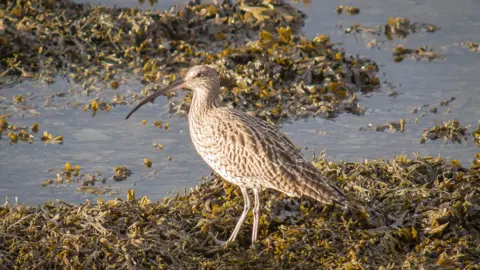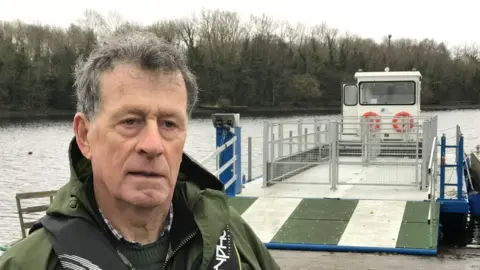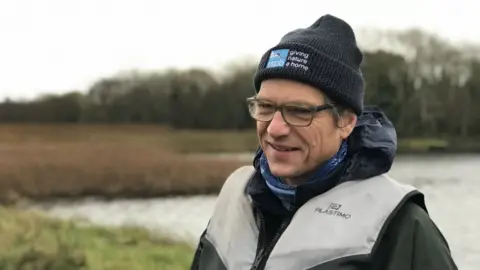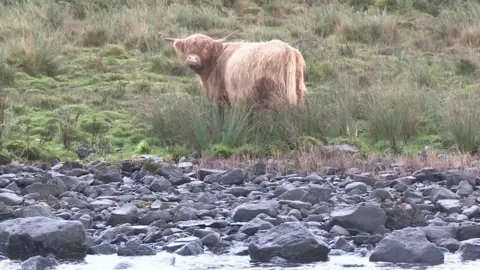The new boat in the battle to save Northern Ireland's birds
 Getty Images
Getty ImagesEfforts to protect the habitats of endangered birds in County Fermanagh have been boosted with the launch of a new boat.
The RSPB will use it to transport livestock to graze on islands on Lower Lough Erne, creating a suitable environment for breeding wader birds.
The vessel has been named in tribute to former RSPB warden Joe Magee.
Having joined the society in 1971, he was one of the first people to notice the alarming decline in curlews.
'You could hear them all over the place'
Mr Magee said when he started work as an RSPB warden in Fermanagh, the sounds of many endangered bird species were common.

"If you went outside the door at that time you could hear curlews, and lapwings, all over the place, and even corncrakes were very common then."
Corncrakes have now disappeared completely from Fermanagh.
Since 1987 curlew numbers have fallen by 89% across Northern Ireland.
Last year there were 39 pairs of curlews on the RSPB managed islands in Fermanagh, 10% of the population on the island of Ireland.
One reason for the decline is a change in farming practices.
'Fewer and fewer meadows'
Brad Robson is the RSPB site manager in Fermanagh who succeeded Mr Magee and said there has been a notable change in the way grassland is farmed.
"There's fewer and fewer hay meadows, there's fewer and fewer species rich wet grassland fields that the birds can successfully be reared in," he said.
"So it's that kind of pressure on land use that is affecting the wildlife and curlews in particular."

Mr Robson said the RSPB's work is essential and by using cattle to manage the grassland they can give curlews "the best possible opportunity that they can to rear young successfully".
"They've declined so steeply across the whole of Ireland and also in Britain as well that if we don't do anything about it then they're simply gong to be gone, that is the harsh reality.
"It is our responsibility really to do as much as we can to give them the best chance of being successful."

He admits over the past few years there has been limited success.
"We've increased by one pair for the past three years but we would much rather being seeing that very small increase than for them to be declining.
Joe Magee designed a boat to transport livestock to the islands in 1991 based on the traditional flat-bottomed Lough Erne cot.
It has been replaced by a new boat funded by the Special EU Programmes Body through the Co-operation Across Borders for Biodiversity project.
Joe Magee said it was an honour to have the boat named after him.
"I'm 84 now so it's nice to think that after I'm gone the name will still be on that cot!" he joked.
